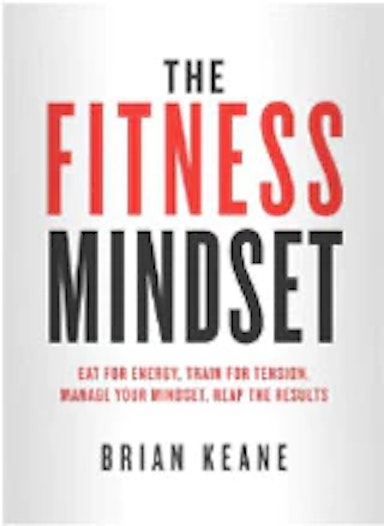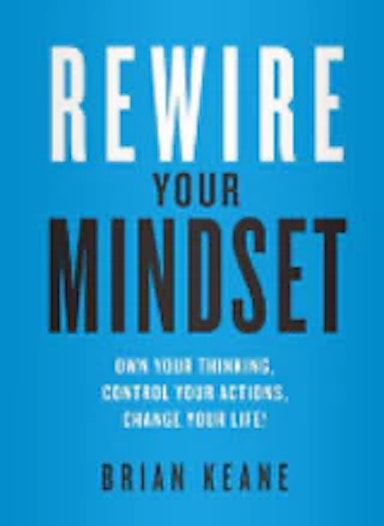What Do The Kardashians, Netflix And Tetris Have In Common?
- By Brian Keane
Sometimes life is as simple as finding the things that make you happy, do more of it – find the things that make you unhappy and do less of it.
However, this isn’t always as easy as it sounds- the sources of what is making you unhappy can be ‘hidden’ or hard to find. When my daughter was born, I started to take reflection on my own life, trying to develop my own character in a more holistic way- it was no longer about me; I had to be a stronger version of myself for a reason bigger than myself.
It was around this time that i started to understand that sometimes i wasn’t completely aware of the things that were affecting my life in a negative way.
The Tetris Effect
I first heard about ‘The Tetris Effect’ in a great book by Sean Achor called ‘The Happiness Advantage’
I remember reading about a British student who was jailed for four months after refusing to turn off his cell phone on a flight from Egypt to England. The crew had told him to switch off his phone so it wouldn’t interfere with the planes communication system but he openly refused. The reason: He was playing Tetris.
Tetris, as you probably know, is a deceptively simple game in which four kinds of shapes fall from the top the screen, and the player can rotate or move them until they hit the bottom. When the blocks create an unbroken horizontal line across the screen, that entire line disappears. The sole purpose of the game is to try and create as many unbroken lines as possible. Alongside our modern day Candy Crush, Angry Birds and other app games, as this British student found out, Tetris was extremely addictive.
In a Harvard Medical School study, they paid 27 people to play Tetris for multiple hours a day, three days in a row. This does sound like a pretty amazing experiment, imagined getting paid to play your favourite game for three days in a row? But wait until you hear about the side effects.
For days after the study, some of the participants literally couldn’t stop dreaming about shapes falling from the sky. Two of my favourite quotations from the article were published in a Philadelphia paper.
“Walking through the aisles at the local store, trying to decide between Honey Nut or the new Frosted Cheerios, I notice how perfectly one set of cereal boxes would fit int with the gap on the row below”
“Going out for some fresh air after hours of work, i rub my watery, stinging eyes, look up at a Philadelphia skyline and wonder ‘if i flip the Victory Building on its side, would it fit into the gap between Liberties One and Two’ – the participants named these weird experiences as the ‘effects of Tetris’ and later became known as ‘The Tetris Effect’.
Was Thats Pablo Esobar In My Local Tesco?
Have you ever binge watched your favourite Netflix shows and then see signs of it everywhere you go? I did this a few months ago with a popular show called ‘Narcos’ – the premise of the show is a dramatised version of the real life Columbian drug lord Pablo Escobar and his journey to becoming one of the most powerful men in the world. The entire show follows the columbian cartel, all powerful men in suits with slicked back, greasy hair who use force to get their way.
I remember binge watching ‘Narcos’ one weekend and later that Sunday evening, as i was standing in a Tesco que – I saw a man with suit and slicked back greasy hair and thinking ‘no, surely not’ … granted he did look a lot like a character from the series but the chances of a columbian drug lord buying apples and toilet paper in my local Tesco was highly unlikely. This is the power of your brain, whatever you feed it- consciencely or sub consciencely- it will see signs for it and focus on that.
So what was going on here? Had I or the other Tetris players gone temporarily insane? Not at all. This type of binge watching or anytime you are highly focused on something causes a normal physical process that results from repeated exposure to anything. They become stuck in something called ‘cognitive afterimage’ – meaning the image is figuratively burned into your brain after seeing something. If you ever see a horrible image on TV (a disfigured body or real crime scene photos)- its hard to get that image out of your head. As I child (and if we’re being completely transparent, an adult), I would regularly have to put on a cartoon or comedy after watching a horror movie to get the mental image of the horror out of my mind. This is the ‘cognitive afterimage’ in its purest form.
For those of you who handle horror movies better than me, do you remember the green and blue dots that cloud your vision after an old school traditional photo was taken of you? You see that same ‘after image’ everywhere until your vision clears – when these students played Tetris for an extended period or I watched 8 non stop hours of Narcos, we similarly became stuck with something clouding our vision. In these cases – a cognitive pattern caused the students to see Tetris shapes wherever they looked and me to see Pablo Escobar in Tesco.
Is Your Favourite Show Shaping How You See The World?
Whats even more worrying, this isn’t just a vision problem – playing hours and hour of Tetris or watching hours and hour of your favourite TV show can change the wiring in your brain. Subsequent studies found that consistent play was creating new neural pathways (the way your brain sees things) and new connections that warped the way they view real-life situations.
I’ve regularly talked about how the thoughts you put into your head influencing the actions you take and the actions you take will dictate the entire direction of your life.
‘if you don’t program your mind, your mind will be programmed’
This quote hit me like a brick to the head after reading about the Tetris effect study. I found that not only was it important to consciencely put positive things into my mind (I largely cut negative people and negative things such as the news out of my life) but it was just as important to control the sub conscience thoughts.
One of the teachers I used to work with was obsessed with ‘Keeping Up With The Kardashians’ – now as a disclaimer, I have the utmost respect for that entire family – they have made a fortune out of ‘being famous for just being famous’ – which i think is admirable but I’ve never been able to watch more than 3 or 4 minutes of the show before I have to leave the room.
I remember this girl told me that she left work at 5pm and would watch at least 3 or 4 episodes of Kardashians every single night; this same girl had probably the most ‘dramatised’ life that I have ever seen: her boyfriend never did enough, her boss didn’t appreciate her and she saw drama in every situation or comment aimed towards her.
She was literally a product of what she is putting into her mind. In the three or four minute spurts that I’ve seen the show, it is purely focused on ‘dramatising’ the smallest things, which makes for good television and higher ratings but what happens when that becomes the way you see the world? Seeing drama in every situation has now become your ‘Tetris Effect’.
Since the study, I’ve all but stopped watching television (minus Peppa Pig and Holly and Ben’s Little Kingdom). Now I’m not saying you have to stop watching TV, on the contrary- its an amazing way to unwind and ‘switch off’ after a hard day but if you find yourself binge watching shows on a regular basis and then finding that your life is ‘replicating’ the show – then it might be worth considering changing the shows that you watch or at least limit them so they’re not affecting the way you see the world in a negative way.
Remember – thoughts influence actions and the actions you take dictate the direction of your entire life.
“If you always do what you did, you will always get what you always got” – Albert Einstein


